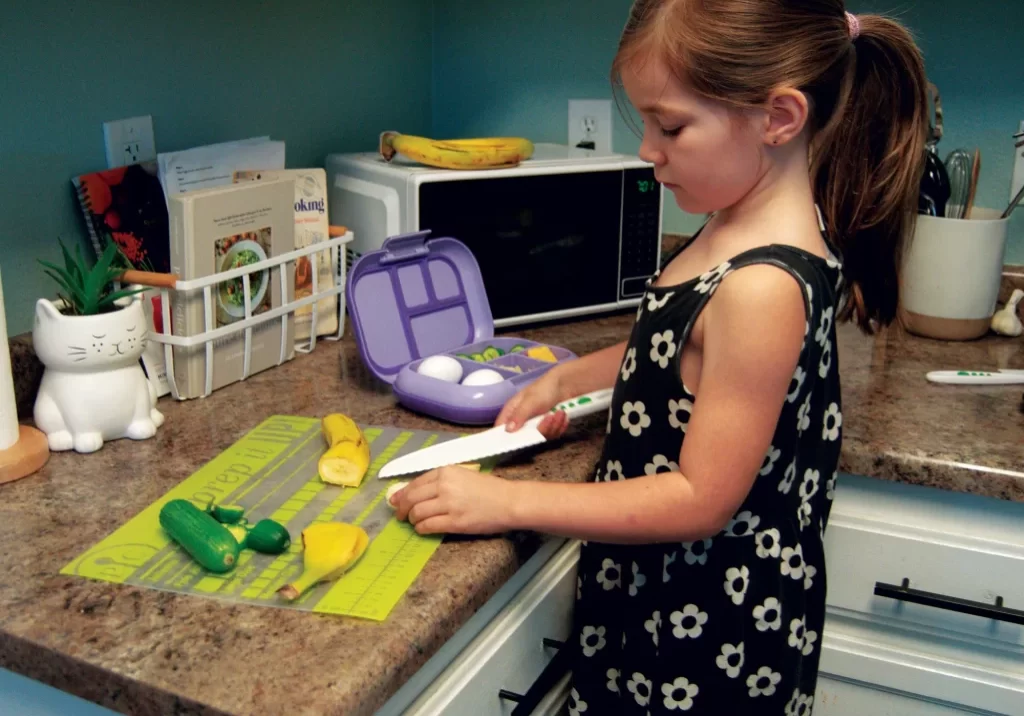The blues can take a parent down any time during the darker months of winter. If you are subject to the holiday blahs, a post-holiday crash, or gloomy moods all winter long, this list of blues-busters can come to your emotional rescue.
Improving your mood is possible and you and your family deserve to thrive no matter what the season of the year. Of course, you cannot control how you feel, but you can control what you do about how you feel. So get ready to experiment until you find some strategies that work for you.
- Be honest with yourself. If you are feeling down, it’s okay. You’ll bounce back from the blues sooner if you can admit, at least to yourself, that something or some things are bothering you. You don’t have to do anything yet, simply try to identify any sources of disappointment or discouragement.
- Tell someone you can trust. Never keep the blues to yourself no matter how severe they are. Usually the sooner you share your feelings with someone you trust, the sooner you experience relief. If no one is available right this minute, write imaginary letters to someone safe in the interim.
- Get plenty of rest. When you feel down, getting enough sleep is crucial although getting too much sleep can work against improving your mood. Find out how much sleep helps you feel energized for the next day and set the alarm for this amount each night.
- Let the sky hold itself up for a while. Sometimes blues are brought on by stress. The first thing a parent can do to create some relief is let go of every responsibility that is not yours. Make a to-do list and then cross off everything you don’t have to do right now. Narrowing your responsibilities to just the must-dos can create some immediate relief.
- Let other adults shoulder their own responsibilities. You cannot be responsible for the happiness of others beyond your dependents. If you have put yourself in any care-taking roles to grown adults, quit those jobs now. The only exception is a care-giving role for someone incapacitated whom you have willingly volunteered to attend.
- Ask for help. It’s true that you can’t always get what you want. But you should always be able to get what you need. After you have fulfilled your basic needs, it’s time to start asking for what you want.
- Address anger. If you don’t believe it is acceptable for you to express anger, unexpressed feelings are going to hurt you in the long run. Ask yourself, “What am I not allowed to feel angry about?” And then start letting any disallowed feelings out in a constructive manner.
- Move some energy. Energy needs to move. If you are feeling down and not exercising, then this is an easy fix. Don’t think about it too much, just move. You can think later, when you are assessing how much better you feel.
- Take responsibility. Let others off the hook and reclaim your happiness. You are the creator of a more joyful life. No one can accomplish this for you.
- Avoid alcohol and other depressants. Depressants are only going to make you feel worse. This may be hard to recognize if you are in the habit of self-medicating. You may think your “medicine” makes you feel better, not worse. But if you felt better, you would not need to self-medicate in the first place. So stop.
- Eat smaller, healthier meals. If feeling down affects your appetite in either direction, see if you can reset your metabolism and blood sugar by having smaller, healthier meals throughout the day rather than just a few large meals.
- Steer clear of complainers. One thing you can’t afford when you are feeling shaky is the company of negative people. Without explanation, let the voicemail pick up, don’t respond promptly to texts or emails, and slacken any volleys of communication with anyone who brings you down.
- Stop guilt-tripping yourself. Don’t let anyone manipulate you into apologizing for increasing self-care. Steer clear of those who use guilt to try to control your choices. When you stop seeking approval from others, you can improve your behaviors and start feeling better. Your primary job in life is taking excellent care of yourself. There is no need to apologize.
- Build inspiration into your daily life. You can overwrite negative voices with positive messages. Opportunities for daily inspiration abound in the Internet age. Set up daily uplifting messages to your inbox, listen to radio shows or stream videos that make you feel good.
- Focus on gratitude. No matter how badly you feel, surely there is something that makes you feel good. There is nothing wrong with feeling grateful for a cup of coffee, as long as you really mean it. Notice your appreciation, feel it, share it, write it down. Do whatever you can to make feelings of gratitude bigger and longer lasting.
- Make a list of the happiest moments from your life. Own what made each moment powerful to you. Forget what others felt about those moments. Let the rest of the past go. No need to hang onto any unhappy memories.
- Switch to glass half full. When you notice yourself focusing on or expressing the negative, pause. It’s just a habit and habits can be changed. Find something—anything—positive to focus on in the moment. If nothing strikes you, engage in one of your new constructive habits, which will create a positive shift you can then appreciate.
- Do something joyous every day. Everyone has activities they do that cause them to forget time and get into a flow state. What are yours? Try to work in at least a half hour a day of flow time, no matter what else is going on.
What About The Can’t-Get-Out-Of-Bed Blues?
If you are feeling so low that you consistently don’t want to get out of bed, it’s time to talk to a doctor and a therapist. A doctor can help you recover your chemical health and a therapist can help recover your emotional health. Schedule regular appointments with both types of professionals until you regain a consistent stable mood.
Don’t settle for anything less than feeling good. If you do not feel good, it’s time to get help. Shame keeps people from seeking help for mood disorders. But when you have a family and they depend on you, you don’t have the luxury of not taking quality care of yourself. If you can’t do it for yourself, get help initially for your loved ones. With the right support, and an ongoing program of new habits, you’ll soon be taking better care of yourself. Because you deserve it. We all do.
Posted in: Health & Nutrition
Comment Policy: All viewpoints are welcome, but comments should remain relevant. Personal attacks, profanity, and aggressive behavior are not allowed. No spam, advertising, or promoting of products/services. Please, only use your real name and limit the amount of links submitted in your comment.
You Might Also Like...

How Moms Can Succeed in Self-Employment and Self-Care
When you have a family, working from home or for yourself makes a lot of sense. A home-based or personal business may create the flexibility you want so you can […]

In The Company of Horses – Equine Assisted Psychotherapy Focuses On Solutions
For thousands of years, people have enjoyed a special bond with horses. We admire them for their beauty, strength and intelligence. They are valuable to us both as work animals […]

Siskiyou County Schools Tackle Tobacco
“Eighty-one percent of California teenagers prefer dating non-smokers,” recites Maya, a Butteville Elementary sixth grade student who is rehearsing for one of a series of recorded tobacco awareness ads to […]

Chico Mothers Club – Support And Lifelong Friendship
In 1995, a group of six mothers got together to create a supportive, safe space for themselves and other families experiencing the journey of motherhood and parenting. Their vision eventually […]




